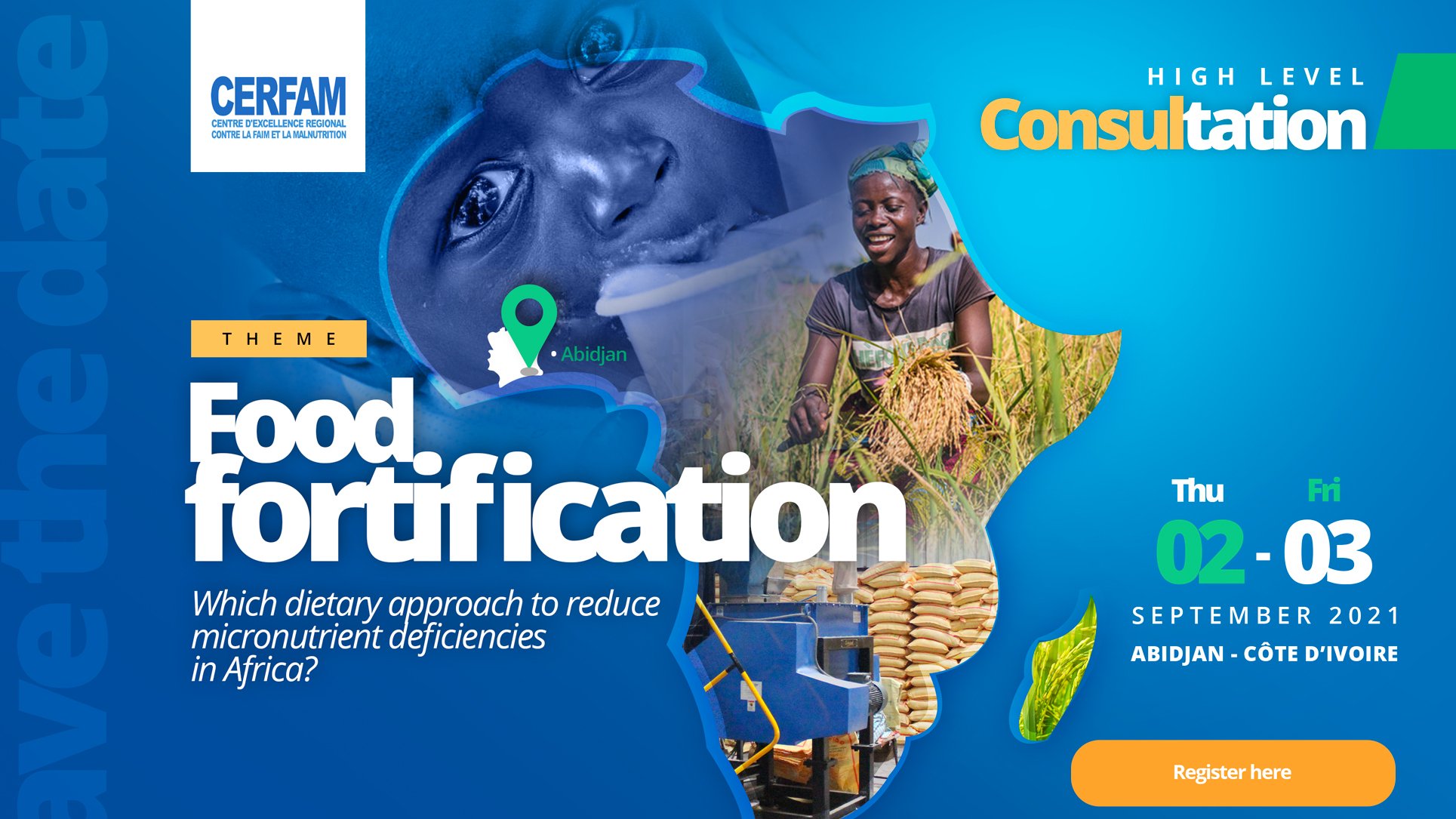
On 2-3 September, the WFP in Côte d’Ivoire, the local government, and the Regional Centre of Excellence against Hunger and Malnutrition (CERFAM), in collaboration with the African Union (AU) and the West African Health Organization (WAHO), will host a virtual high-level consultation under the theme “Food fortification: which dietary approach to reduce micronutrient deficiencies in Africa?”. The event will be an opportunity to exchange and share experiences and good practices in food fortification at the global, regional, and national levels with a view to accompanying and supporting the efforts of African countries to eliminate malnutrition in all its forms. Participation is free and registrations are open here.
The programme brings together food systems’ experts and key players working in the field of nutrition in Africa. These include representatives of governments, regional and sub-regional organizations, the African Parliamentarians’ Network, development partners, control and regulatory agencies, the private sector, academia, and civil society organizations. Representatives from the Brazilian Ministries of Health and Education will take part in a panel discussion on Friday, September 3rd, at 10:15 GMT and will present the country’s experience with food fortification. The WFP Centre of Excellence against Hunger Brazil is supporting the Brazilian government in this initiative.
The role of food fortification in child nutrition
Today, nearly one in three people worldwide suffer from at least one form of malnutrition and this situation is particularly alarming in sub-Saharan Africa. Progress to date remains insufficient and no country is on track to meet the global nutrition targets by 2025. Micronutrient deficiencies constitute a serious public health problem and a major impediment to the socio-economic development of the individual, the community, and the society. This situation is likely to further deteriorate as a result of the health and socio-economic consequences of the COVID-19 pandemic.
Food fortification is widely recognized as a preventive, effective, proven and cost-effective public health strategy for ensuring optimal nutrition while reducing health costs in the long term. It has been identified by the World Health Organization (WHO), the Copenhagen Consensus, the Food and Agriculture Organization of the United Nations (FAO) as well as the World Food Programme as one of the main strategies for reducing hidden hunger. You can learn more about the event here.




